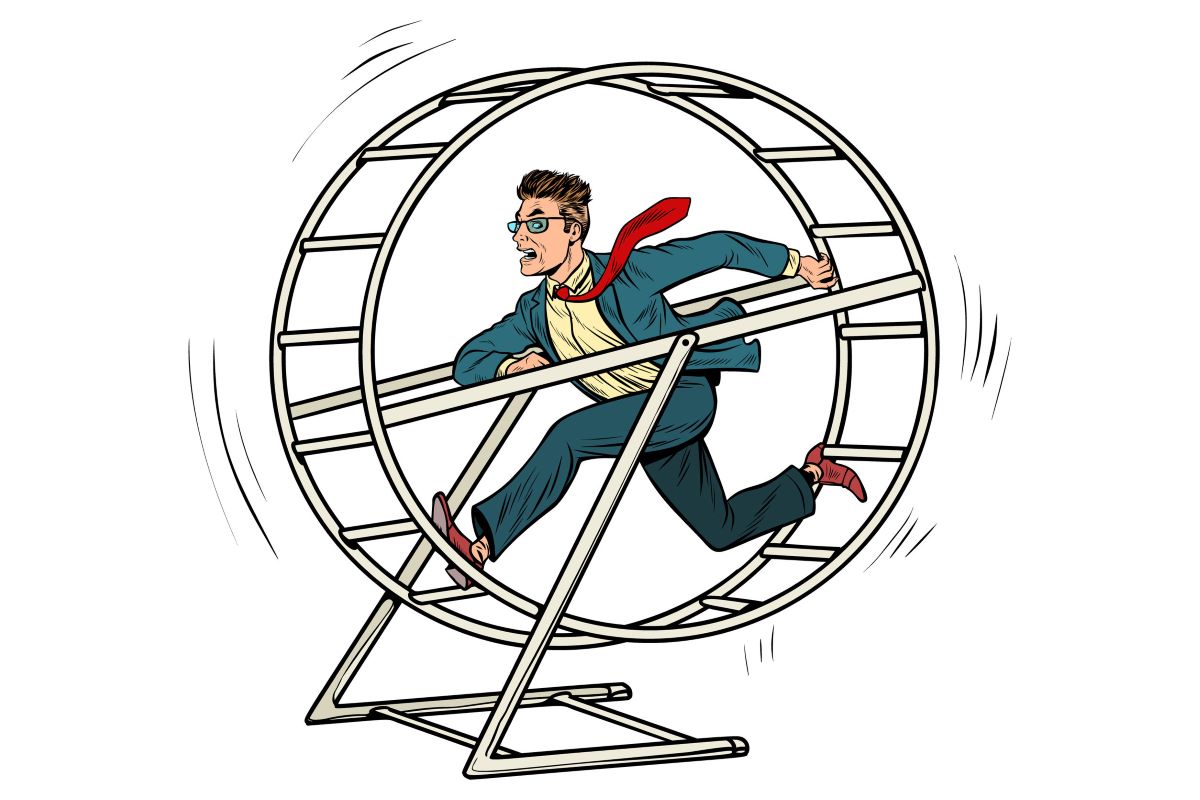Is remote work hurting or helping work/life balance?
New data from Blind reveals raw takes on the pros and cons of our WFH lifestyles.

You should always be careful what you wish for.
For years, workers have increasingly bemoaned the strictures of 9-5 office life. The commuting, the desk clumps and the forced “cultural moments” with colleagues had jumped the shark, so it seemed. Now, seven months into a pandemic that’s thrust most of the workforce into long-term remote work scenarios, all that freedom and flexibility looks a bit different.
For some, WFH has been a boon. For others, however, full-time remote work has been more of a nonstop monsoon of tasks, emails and Zooms. It all begs the question: Is WFH a sustainable framework for the future of work?
Blind, an app that provides an anonymous forum for juicy, unvarnished workplace chatter, recently asked its community of users to weigh in on WFH’s impact on work/life balance. The 230 comments (and 5,558 respondents’ votes) varied wildly, but a strong majority (57%) say working from home has “worsened” their work/life balance. Blind’s data shows:
- 65% of Amazon professionals say the current WFH situation worsened their work-life balance
- 67% of Facebook professionals say the current WFH situation worsened their work-life balance
- 76% of Lyft professionals say the current WFH situation worsened their work-life balance
- 75% of Visa professionals say the current WFH situation worsened their work-life balance
Healthy balances and boundaries
With no end in sight to the pandemic, employers should take employees’ work/life balance very seriously. If not, you could be in for a painful season of burnout, turnover and disengagement.
As one Google employee put it: “There used to be some delineation between work and home life, now it’s gone. Not working from home, just living at work.” An Amazon employee adds: “I have a hard time turning everything off at 5 p.m. as I should, since work and home are now blended together.”
Many other grievances arose, including video chat fatigue, wildfire smoke preventing outdoor activity, meddling managers and even tech problems caused by incessant, bandwidth-gobbling Zoom meetings. One Zoom employee offered a funny lament, saying his work situation has soured because “Zoom has Zoomed 😫.”
It’s not all bad, though. Many more chimed in with the bright side of remote work, citing the lack of commute and not having to dress to the nines each morning. Some referenced healthier lunches and increased physical activity as WFH benefits—and one lucky respondent even mentioned an uptick in, er, “romantic time spent” with a partner.
Aside from encouraging workers to set healthy boundaries and modeling good behavior, what can employers do to help employees make the most of these strange times? A consultant from Avanade added these helpful tips:
“The goal is to trick your brain into creating that separation [between work and your personal time]. Some things you can do include: rituals for when you start the day and end the day; working in a specific spot during the day, then leaving that spot when the day is over; putting certain “work clothes” on at the beginning of the day and changing at the end of the day; maintaining a strict schedule (e.g. always start at 9 and always stop at 5).”
For more data on workers’ raw feelings toward WFH, download Blind’s full report here.








Tks for the interesting article. There’s a difference between working from home and remote work – especially in the pandemic. Not sure if these stats reflect all the parents in the unusual situation of home schooling children while trying to hold down a job at the same time. Also, a number of businesses were not prepared for the “great work from home experiment” and scrambled to develop IT solutions rather than have the luxury to time to develop optimal solutions.
Excellent point you raise re delineating between work and personal time. I’ve found burning different scented candles a great way to delineate between work and relaxation time – the work candle has aromatic oils that (reputedly) improve focus and the evening candle has (reputedly) calming oils.
Be well all.
I’ve actually worked remotely (with little kids also at home) for seven years before the pandemic, and the pandemic has helped a lot! For one thing, I no longer have to “hide” my kids when I have a work meeting, find people to watch them when I have to go in, or put off requests for unnecessary in-person meetings for things that could be phone calls instead (they’re all automatically Zoom calls from home now, which is much easier).
For me the big thing is the flexibility. I work early in the morning before the kids get up, and I work “after hours” if needed, but that means I also have the flexibility to spend a couple of hours playing/helping with school in the middle of the day if needed, or run to the store during nap time (since my husband is also working from home due to the pandemic). So even though I don’t follow the “work strictly from 9-5” advice everyone gives, I have a better work/life balance than I would at an office that doesn’t give me flexibility to be with my kids in the middle of the day when they need me. It’s not all a piece of cake if I have something on a close deadline, but it works!